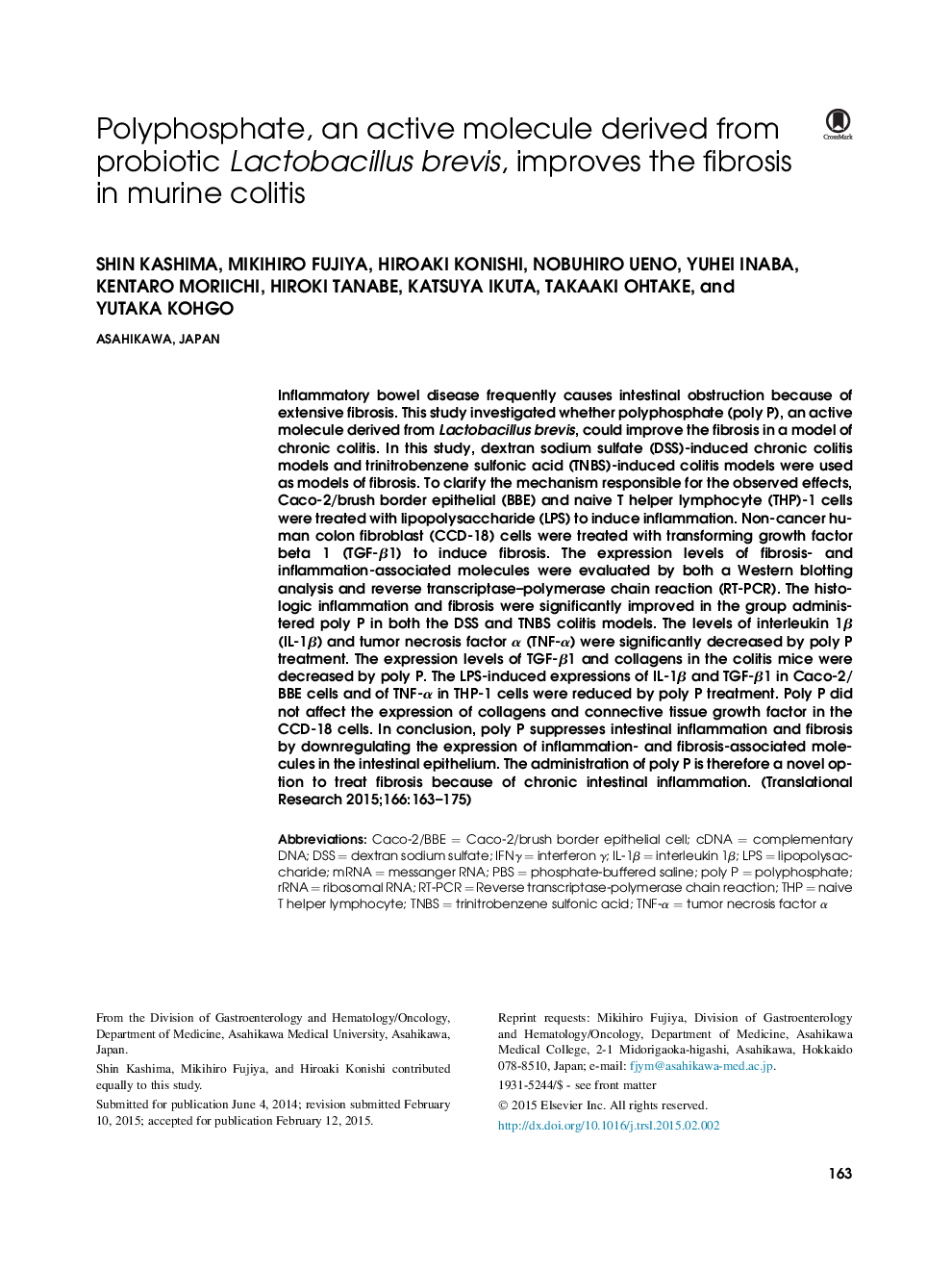| کد مقاله | کد نشریه | سال انتشار | مقاله انگلیسی | نسخه تمام متن |
|---|---|---|---|---|
| 3840128 | 1247890 | 2015 | 13 صفحه PDF | دانلود رایگان |

Inflammatory bowel disease frequently causes intestinal obstruction because of extensive fibrosis. This study investigated whether polyphosphate (poly P), an active molecule derived from Lactobacillus brevis, could improve the fibrosis in a model of chronic colitis. In this study, dextran sodium sulfate (DSS)-induced chronic colitis models and trinitrobenzene sulfonic acid (TNBS)-induced colitis models were used as models of fibrosis. To clarify the mechanism responsible for the observed effects, Caco-2/brush border epithelial (BBE) and naive T helper lymphocyte (THP)-1 cells were treated with lipopolysaccharide (LPS) to induce inflammation. Non-cancer human colon fibroblast (CCD-18) cells were treated with transforming growth factor beta 1 (TGF-β1) to induce fibrosis. The expression levels of fibrosis- and inflammation-associated molecules were evaluated by both a Western blotting analysis and reverse transcriptase–polymerase chain reaction (RT-PCR). The histologic inflammation and fibrosis were significantly improved in the group administered poly P in both the DSS and TNBS colitis models. The levels of interleukin 1β (IL-1β) and tumor necrosis factor α (TNF-α) were significantly decreased by poly P treatment. The expression levels of TGF-β1 and collagens in the colitis mice were decreased by poly P. The LPS-induced expressions of IL-1β and TGF-β1 in Caco-2/BBE cells and of TNF-α in THP-1 cells were reduced by poly P treatment. Poly P did not affect the expression of collagens and connective tissue growth factor in the CCD-18 cells. In conclusion, poly P suppresses intestinal inflammation and fibrosis by downregulating the expression of inflammation- and fibrosis-associated molecules in the intestinal epithelium. The administration of poly P is therefore a novel option to treat fibrosis because of chronic intestinal inflammation.
Journal: Translational Research - Volume 166, Issue 2, August 2015, Pages 163–175